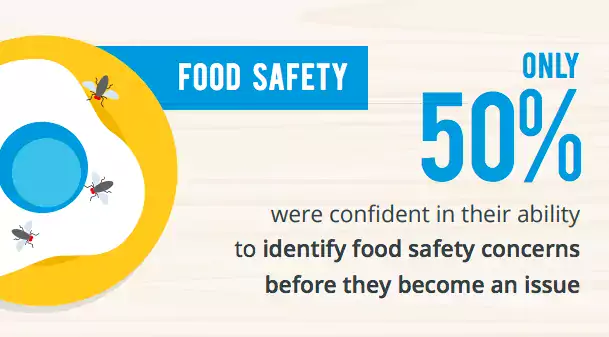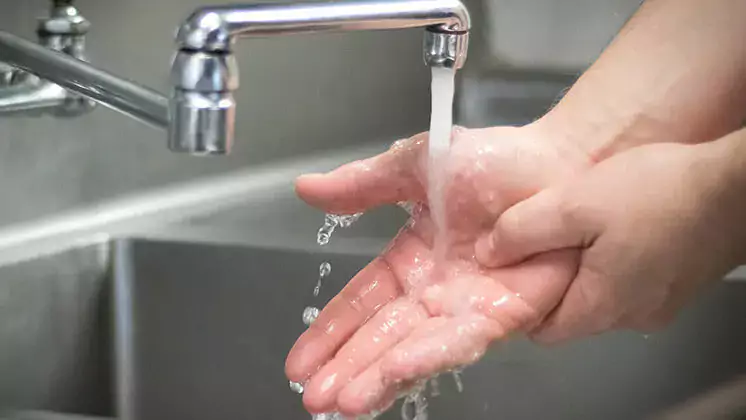September is National Food Safety Education Month. This is an incredibly important topic, especially for restaurant owners. According to researchers at Johns Hopkins Bloomberg School of Public Health, a single foodborne illness outbreak at a fast-casual establishment could cost between $6,330 to $2.1 million, depending on the severity of the outbreak. Because of this, investing in food safety is paramount for any food service organization. It’s not only embarrassing to be called out for things that are easily recognizable and fixable, but it could be catastrophic. Health inspections aren’t a trivia game show with mystery questions—operators know in advance what officials look for prior to inspection. It’s time for smarter operations. Here are 5 standards you should uphold in order to maintain a clean restaurant:
- Develop clear and regular cleaning procedures. Cleanliness is not only a safety issue—in some cases, it could impact the quality and safety of food. Developing a standardized practice for cleaning procedures that are followed properly by all employees is a must.
- Prioritize Data Collection. Documentation isn’t just a nice-to-have; it creates a vital paper trail that can be essential in documenting important information. And if you have the right tools, you can go paperless and have all information, including past audits and inspections, stored securely on the cloud.
- Track the progress of locations to see which stores are clean, which stores aren’t, and why. Communication is key. The point isn’t to dishearten or shame restaurants into submission. It’s to keep customers satisfied. By educating foodservice employees and encouraging managers to develop effective procedures, restaurant operators can keep their customers consistently coming back for more.
- Have the ability to follow up on and fix issues at individual locations. What was the point of conducting an audit in the first place? When it comes to health regulations, restaurant managers need to follow up once a directive is given. It’s not enough to assume these problems have been resolved. Again, documentation and communication is critical.
- Invest in the latest technologies. Mobile technologies are the key closing the loop on the creation and roll-out of procedures. It is not enough to design these well thought-out protocols - You must have the proper technology to execute and follow-up on any issues in realtime.
The Takeaway
Creating, distributing, and collecting a baseline audit for cleanliness can be a time-consuming process without the right tools. With Zenput, restaurant operators can create a mobile form, edit, and send it out to the appropriate employees as needed. That form is automatically distributed to employees’ mobile devices, and when they answer each question, the results are aggregated in an easy-to-read dashboard. Moreover, a senior manager can set up real-time notifications of any unsanitary condition discovered during the audit. To ensure accountability, the auditor can upload a photo of a problem and the senior manager can follow up with that store to make sure the issues were resolved.
For more examples on how Zenput helps restaurants uphold standards and clean kitchens, request a demo.
Subscribe to our blog
You are now subscribed!


